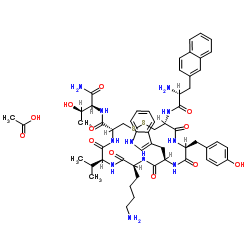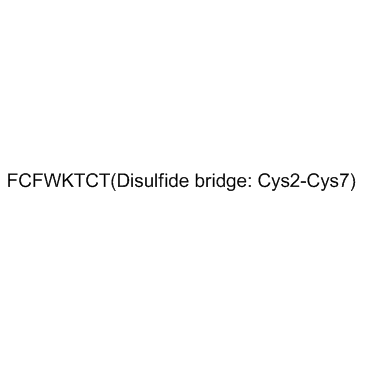| Structure | Name/CAS No. | Articles |
|---|---|---|
 |
Lanreotide acetate
CAS:127984-74-1 |
|
 |
Octreotide acetate
CAS:83150-76-9 |